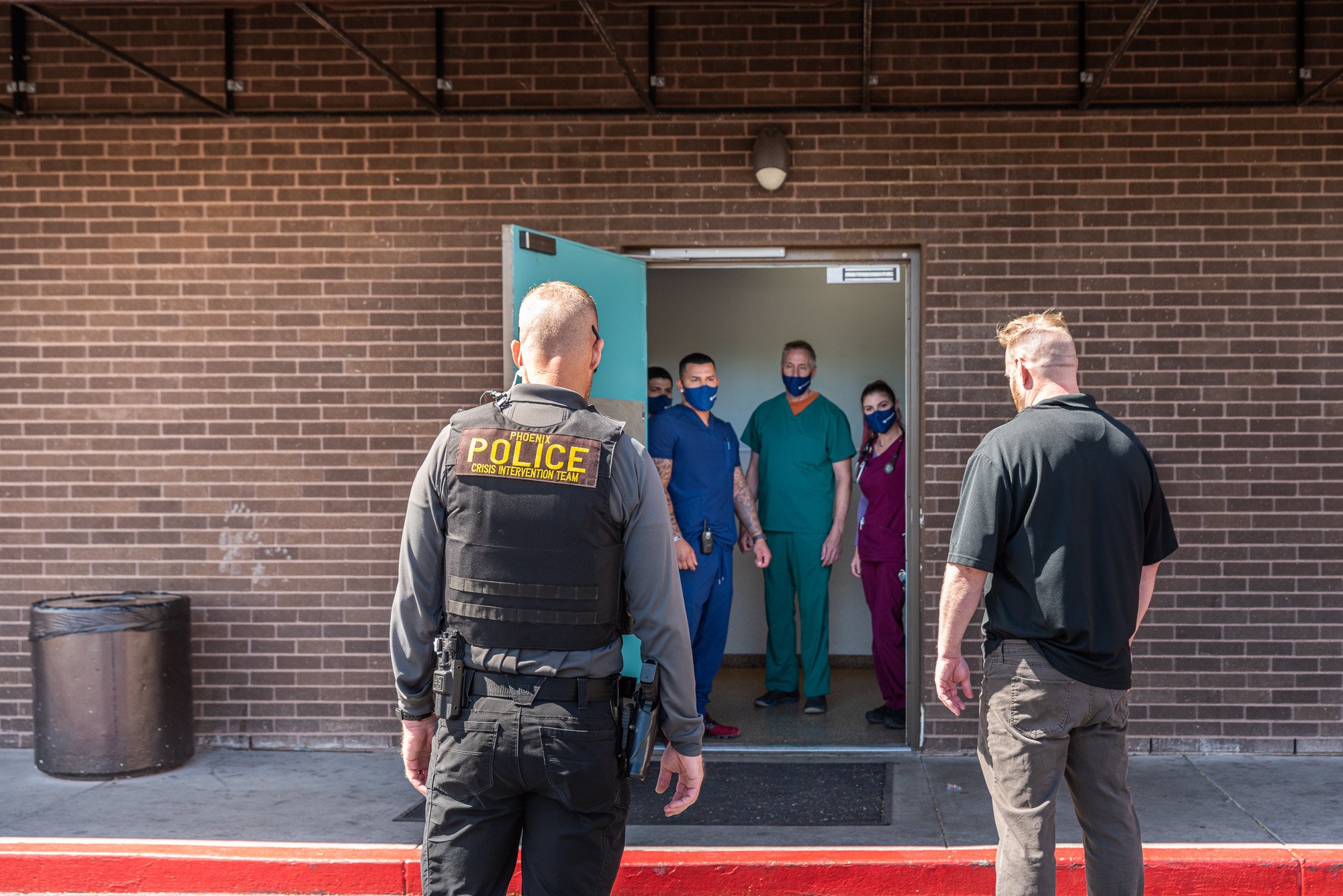One of the core goals of crisis services is to reduce unnecessary emergency department visits and jail bookings by providing readily accessible behavioral health care. A dedicated receiving function at crisis centers plays a pivotal role in this mission, offering a 24/7 entry point for individuals in need through walk-ins, emergency department transfers, and direct drop-offs by first responders.
This streamlined process provides a more efficient alternative to incarceration or emergency departments and ensures that a crisis is addressed immediately, and treatment can begin as soon as possible. It represents a community-centered approach to enhancing crisis response.
Streamlined support for first responders
For first responders, efficiency is key. Crisis centers are designed with this in mind, featuring dedicated drop-off points that streamline the process of transferring individuals from law enforcement to the center. This makes it easier and faster for officers to get back to their duties and ensures that individuals receive the right kind of care without unnecessary delays.
Dr. Margie Balfour, chief of quality and clinical innovation at Connections Health Solutions, emphasizes the importance of this streamlined approach: “One key feature for making these centers work is that it needs to be easier and faster to use them than jail.” The dedicated entrance for first responders helps minimize stigma by discreetly managing the arrival of individuals with law enforcement, providing a more supportive and less public environment.
Inclusive and accessible care
Comprehensive crisis centers must be designed and equipped to serve individuals regardless of their behavioral acuity, mental health condition, or substance use status. This inclusive approach ensures that everyone who walks through the door receives the appropriate support without being redirected to emergency departments or jails.
“No wrong door” policy
A “no wrong door” policy means that anyone seeking help will be welcomed, regardless of their needs. If someone requires services beyond what the center can offer—such as emergency care or residential substance use treatment—staff will assess and stabilize them, then arrange any necessary transfers. This approach ensures that no one is turned away and that everyone gets the care they need.
Medical stability over clearance
When individuals arrive at a comprehensive crisis center, they are assessed for medical stability rather than “medical clearance.” Minor issues are addressed on-site, while more serious conditions are transferred to the emergency department for further evaluation. Once stabilized, individuals are returned to the center for continued care. This method allows for tailored, comprehensive support, ensuring that each person’s needs are met effectively.
The receiving function at comprehensive crisis centers creates an opportunity to ensure communities have access to efficient, inclusive, and tailored care, that benefits both individuals in crisis and the first responders who serve them.
SOURCE: https://www.sciencedirect.com/science/article/pii/S0193953X24000443

%20(11).png)
%20(9).png)
%20(8).png)